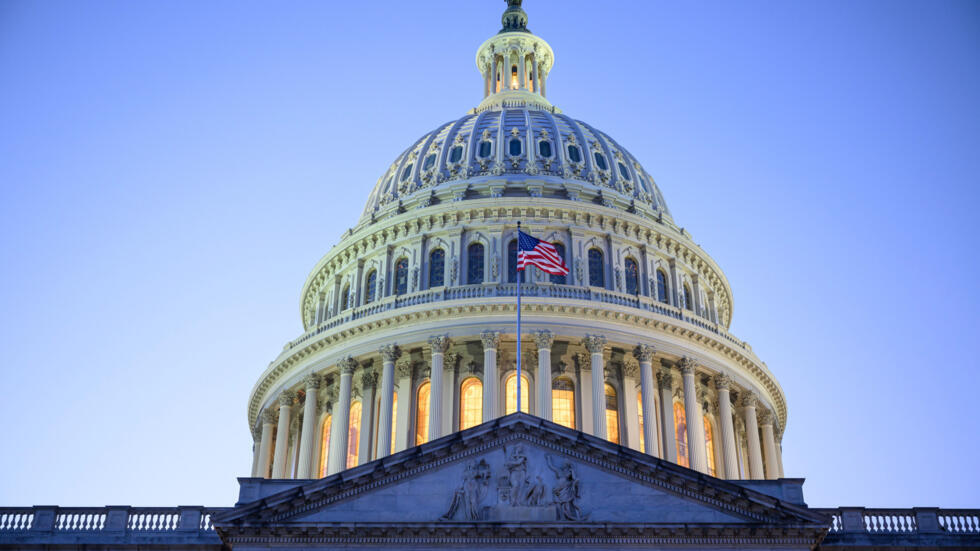
In the 2024 midterm elections, a Republican sweep in the midterms has solidified GOP control in both houses of Congress and several state legislatures. The significant gains reflect a shift in the nation’s political landscape, giving the GOP enhanced influence over policy-making at both national and state levels. With control over the legislative agenda, Republicans are poised to push forward conservative policies, potentially impacting areas like economic reform, immigration, and healthcare.
The Path to a Republican Sweep
The midterm elections have historically been a time for shifts in power, but the 2024 cycle has marked an especially notable Republican sweep in midterms. Riding a wave of voter sentiment focused on economic concerns, public safety, and border security, the GOP successfully capitalized on these issues to strengthen its foothold. Analysts have noted that Republican candidates not only maintained support among their traditional base but also made inroads with key demographics, including independent voters and suburban communities, which were crucial in several swing states.
Several factors contributed to this victory, including:
- Economic Concerns: With inflation and job insecurity dominating voter concerns, Republican candidates focused on reducing taxes, controlling government spending, and implementing pro-business policies.
- Public Safety: Calls for stricter crime policies resonated with voters who are increasingly concerned about public safety in urban and suburban areas.
- Immigration: Republican candidates highlighted a need for more secure borders and stricter immigration policies, a stance that gained traction in border states and beyond.
GOP Gains in Congress
The Republican sweep in midterms granted the GOP a majority in both the House of Representatives and the Senate, enabling them to set the legislative agenda and challenge policies from the executive branch. With this majority, Republicans are expected to introduce conservative bills that align with their platform.
Key Congressional Goals:
- Economic Reform: With a focus on pro-growth policies, Republicans aim to pass tax cuts for businesses and reduce regulations that they argue hinder job creation and economic expansion.
- Healthcare Changes: While outright repeal of the Affordable Care Act may be challenging, GOP lawmakers are likely to push for amendments and reforms aimed at increasing competition and lowering costs.
- Border Security and Immigration: Republicans are expected to focus on legislation that tightens border security, increases funding for border patrol, and revises visa policies to curb illegal immigration.
Strengthened State-Level Control
The Republican sweep in midterms also saw the GOP securing control in key state legislatures across the nation. This expanded influence at the state level grants the party the power to shape policies that impact millions of Americans directly, from education funding to healthcare access. GOP-led states are already outlining their priorities, which will likely reflect the national agenda, focusing on economic growth, crime reduction, and educational reforms.
Influence Over Redistricting
Having control in state legislatures also gives the GOP leverage over redistricting processes. The party’s expanded control in key states may allow Republicans to redraw congressional and legislative districts in ways that solidify their influence in future elections. This potential for redistricting is likely to have long-lasting effects on the political landscape, as it could shape the balance of power in both state and federal legislatures for the coming decade.
Key Policy Areas Impacted by the Republican Sweep
With the Republican sweep in midterms giving the GOP a stronghold across multiple levels of government, several policy areas are expected to be affected:
- Education: Many GOP-led states have shown interest in reforming public education, with an emphasis on school choice, parental rights, and curriculum changes that reflect conservative values.
- Environmental Policy: Republicans may seek to roll back environmental regulations they believe are overly restrictive, potentially impacting federal and state policies on climate change and energy production.
- Gun Rights: With a majority in Congress and several state legislatures, Republicans are likely to support legislation protecting Second Amendment rights, opposing restrictive gun control measures in favor of expanded gun ownership protections.
Reactions from Both Sides
The Republican sweep in midterms has generated strong reactions across the political spectrum. While Republican supporters view it as a mandate to advance their policy agenda, Democratic leaders and their constituents have expressed concerns about the direction of the country under a GOP-controlled Congress.
- Republican Reaction: GOP leaders have hailed the election results as a clear message from voters seeking a return to conservative values and a stronger economy. They argue that this victory reflects widespread dissatisfaction with progressive policies.
- Democratic Response: Democratic leaders are now tasked with regrouping and strategizing for the next election cycle. Many have cited concerns that the Republican agenda could negatively affect healthcare access, education funding, and environmental protections.
The Road Ahead for the Democratic Party
As Republicans consolidate power, the Democratic Party faces the challenge of rebuilding and re-engaging with voters. While the loss has left many Democrats disheartened, party leaders are already strategizing on how to address key issues and regain support. The focus is likely to be on refining their message to appeal to a broader base, with particular attention on issues like economic stability, social justice, and climate change that resonate with younger and more progressive voters.
Moving forward, Democrats may seek to collaborate with moderate Republicans on certain bipartisan issues, such as infrastructure development and veterans’ affairs, to maintain a foothold in policy-making while preparing for future elections.
Implications for 2024 and Beyond
The Republican sweep in midterms not only signals an immediate shift in U.S. policy direction but also sets the stage for the 2026 and 2028 elections. The GOP’s success may influence candidate selections, campaign strategies, and policy focus in future races, especially as both parties assess what resonated with voters this cycle. Republicans may leverage their newfound power to implement long-term changes that could shape the country’s policies for years to come, from education reforms to tax policies.
For Americans, this shift in power presents both opportunities and challenges. Supporters of the GOP agenda look forward to conservative reforms, while opponents are bracing for policy changes that may conflict with their views on healthcare, immigration, and environmental protections. The coming years will likely witness a series of political debates and legislative battles as the GOP seeks to fulfill its promises and the Democrats work to counter them.
Conclusion: A Pivotal Moment for U.S. Politics
The Republican sweep in midterms represents a turning point in U.S. politics, giving the GOP a commanding position in Congress and in state governments. With control over the legislative agenda, Republicans are positioned to enact a conservative vision for the country, one that emphasizes economic growth, public safety, and traditional values. For both parties, the midterms are a reminder of the importance of listening to the electorate and addressing their priorities. As the nation moves forward, the impact of this election will be felt across all aspects of American life, from the laws passed to the tone of political discourse.
image credit – Mandel NGAN / AFP


